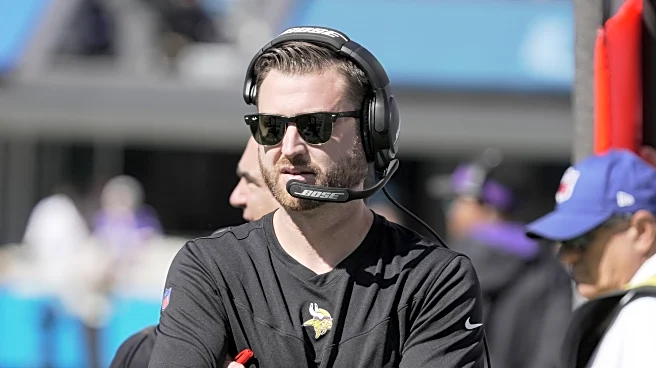Rapid Read • 8 min read
The Department of Health and Human Services, under Secretary Robert F. Kennedy Jr., has announced the termination of its mRNA vaccine development program. This decision involves canceling 22 mRNA vaccine development contracts valued at $500 million. Kennedy, known for his vaccine skepticism, argues that mRNA technology is ineffective against viruses affecting the upper respiratory tract, such as Covid-19, and claims it may prolong pandemics due to viral mutations. Former Surgeon General Jerome Adams has publicly criticized this move, stating it will 'cost lives.' Adams emphasized the broader applications of mRNA technology beyond vaccines and credited it with saving millions of lives during the Covid-19 pandemic.
AD
The decision to halt mRNA vaccine development could have significant implications for public health in the United States. mRNA vaccines have been pivotal in controlling the Covid-19 pandemic, and their discontinuation may hinder future pandemic preparedness and response. The move could also impact ongoing research and development in the biotechnology sector, potentially stalling innovations in vaccine technology. Critics, including Jerome Adams, warn that this decision undermines scientific advancements and could lead to increased vulnerability to infectious diseases, affecting public health outcomes and the healthcare system's ability to respond to future health crises.
The termination of mRNA vaccine contracts may prompt reactions from various stakeholders, including public health officials, scientists, and the pharmaceutical industry. There could be calls for congressional oversight or intervention to reassess the decision's impact on national health security. Additionally, the scientific community may advocate for continued investment in mRNA technology, highlighting its potential benefits beyond vaccines. The public may also express concerns about the implications for vaccine availability and effectiveness, potentially influencing future policy decisions regarding vaccine research and development.
The decision to end mRNA vaccine development raises ethical and scientific concerns about the role of government in public health policy. It highlights the tension between political ideologies and scientific evidence in shaping health strategies. The move may also affect public trust in health authorities and vaccine programs, particularly if it leads to increased disease outbreaks. Long-term, this decision could shift the focus of vaccine research towards alternative technologies, potentially altering the landscape of vaccine innovation and public health preparedness.
AD
More Stories You Might Enjoy











